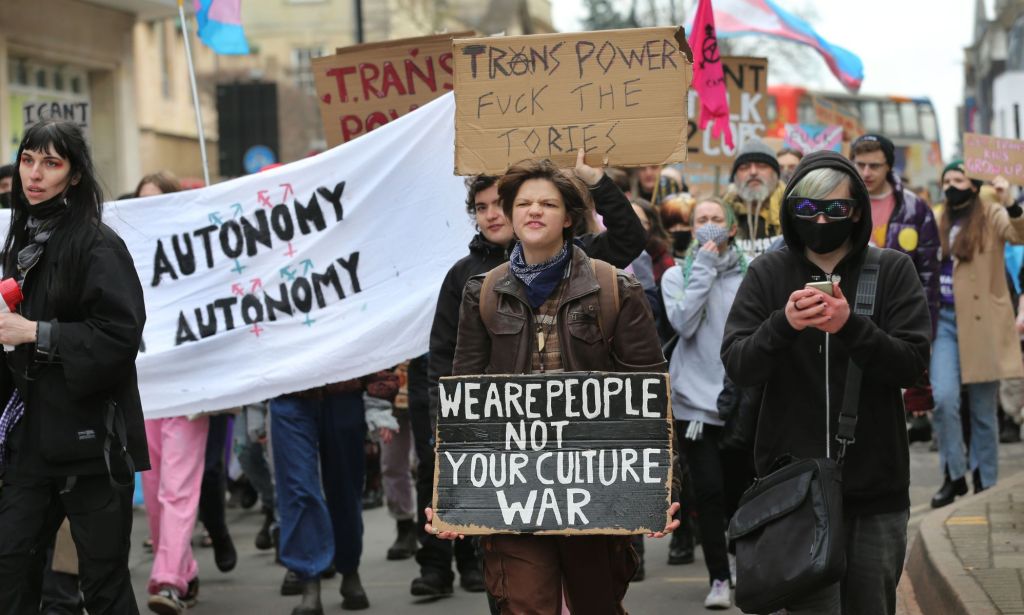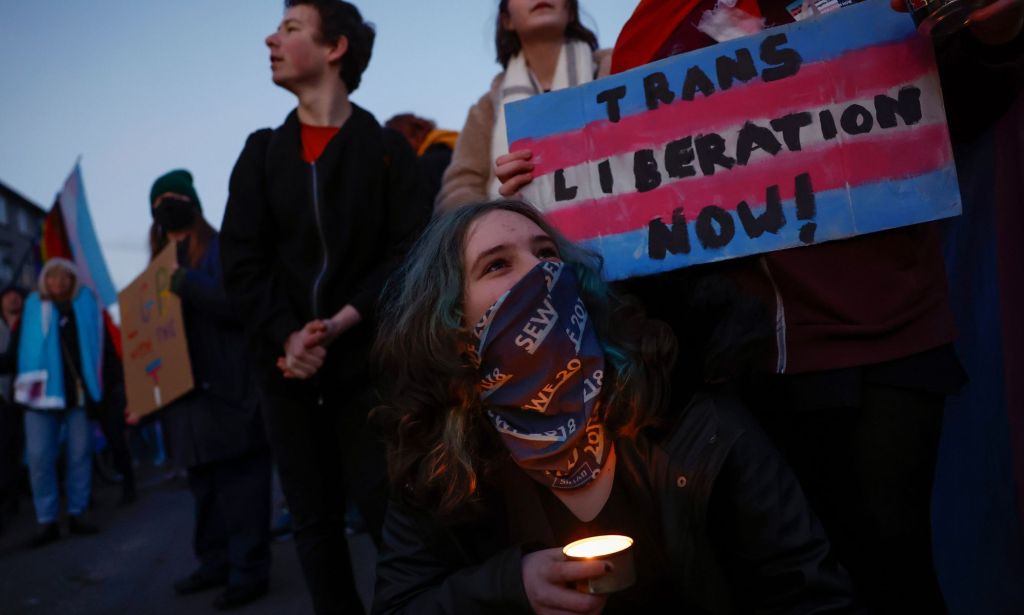Grassroots group tracking EHRC’s trans rights ‘attacks’
A collective of journalists, activists and analysts is shining a light on the UK’s anti-trans movement, to reveal who is pushing the agenda, where the money comes from, and how it’s all linked.
Trans Safety Network (TSN) was established in 2020 and has staked a place on the frontline of the battle against a wave of anti-trans campaigning. The network records and presents evidence to help understand the escalating campaigns that aim to incite hatred against the trans community.
Recently, the UN’s independent expert on sexual orientation and gender identity, Victor Madrigal-Borloz, published a damning report on LGBTQ+ rights in the UK.
As well as the government’s delays on banning conversion therapy and politicians fuelling anti-trans rhetoric, he specifically called out the Equality and Human Rights Commission (EHRC), the UK’s equality watchdog, for what he called an attempt to help the government “carry out discriminatory distinctions currently unlawful under UK law” against trans people.
TSN director, Jess O’Thomson, a human rights lawyer, was among the researchers, human rights defenders and LGBTQ+ advocates to meet with Madrigal-Borloz.
“We’re not a huge organisation backed by big names or big money,” O’Thomson tells PinkNews.
“The seat we got at that table was entirely [down] to the very high-quality research we do and the position we have made for ourselves in the trans community, as a trusted resource of expertise and analysis.”
TSN has earned its reputation because of its “incredibly high standards – perhaps unhealthily high standards”, she adds.
“It’s because of the breadth of expertise we have. We’re not a particularly narrowly focused group, and we’re not just, for example, looking at healthcare or something like that.
“We’re able to draw links that other groups might potentially not notice across different points of anti-trans organising. We can match up exactly how these strategies support one another, and that’s very helpful.
“Very quickly after reading our research, people who do not have a background in LGBT research can start to get an idea of exactly who’s behind all this, where all the money’s coming from, what different strategies are being employed, who the big names are, the big organisations, who’s in them and how all these things are linked together.”
One example O’Thomson notes is that Madrigal-Borloz didn’t know who Maya Forstater was when they met. In the UK, her name is synonymous with the so-called gender critical movement – she fought a legal battle that resulted in a tribunal judge enshrining “gender-critical” views as a protected belief.
That gap in his knowledge is to be expected, O’Thomson goes on, because his focus is global. “Trans people are so hyper aware of this all the time, you can often forget how little other people know.”
Trans Safety Network has tracked the EHRC’s stance on trans rights
The organisation’s network of volunteers have tracked the surging online hate directed towards trans people and allies. They’ve also been sharing information about the right-wing figures in prime minister Rishi Sunak’s Cabinet and the increasingly close ties between anti-trans figures within British politics.
Researchers have also uncovered how an anti-trans campaign group promoted conversion practices in guidance for parents, the increasing problems with the NHS provisions on gender-affirming healthcare and how the far right are showing support for prominent anti-trans activist Posie Parker.
O’Thomson says there’s an “active, very well-funded, very well-organised contingent of people who want to roll back” trans rights in the UK, and “certainly want to prevent us from obtaining any more”.
Notably, TSN has carefully tracked how the EHRC’s relationship with the LGBTQ+ community has deteriorated as the equality watchdog is increasingly accused of positioning itself against trans rights in the UK. TSN has described its interventions on issues such as conversion therapy and Scottish gender recognition reform as “attacks… on trans rights”.
The watchdog recently published its advice on a possible change in the Equality Act to define sex as “biological sex”, which would strip trans people of sex-based discrimination protections.
Madrigal-Borloz said the advice, written in response to a request from equalities minister Kemi Badenoch, although presenting itself as balanced, and making no recommendation, “was to offer the government a formula through which it could carry out discriminatory distinctions”.
He reported that an EHRC commissioner conceded that its only “intended meaning” of “biological sex” is “to define women as ‘women who are not trans’.”
The EHRC told PinkNews: “As we did in our conversation with Mr Madrigal-Borloz, we completely reject the assertion that the objective of our advice to government was to lessen human rights protection.”
The incident has widely been seen as a precursor to an inevitable move by the UK government to strip trans people of protections.
The community is small – the 2021 England and Wales census suggested there are 262,000 trans adults across the two countries – and TSN is hoping to take away some of the burden from individuals having to fight for their autonomy.
“Part of our raison d’etre is that if we didn’t exist then it would effectively be down to every single trans person to try [to] figure all this stuff out by themselves,” O’Thomson says. “Not every trans person will have the requisite expertise to be able to easily navigate everything.

“We’ve got people who have particular specialisms in the far right and how the [they] operate.
“My particular specialism is in the legal side of things. I have a law degree and that makes it far easier for me to read a legal case, pick out the important bits, and provide it in an easily digestible format.”
At a time when its work is needed more than ever, Trans Safety Network is relaunching and expanding
Recently, TSN put out a call for new volunteers. They had to close the application after 100 people applied in 48 hours.
The network is relaunching and expanding, and it’s an opportunity for the organisation to cover even more ground and allow current volunteers to pass on their knowledge and experience to a new generation, O’Thomson says.

Just as importantly, the more TSN can focus on monitoring anti-trans rhetoric, the more “space and time the rest of the community has to do beautiful stuff”, she explains.
“I don’t want other trans people to feel they have to do this work all the time. The more efficient we can become doing it, the more we can save resources for the rest of the community to do that kind of beautiful work that a lot of us participate in on the sidelines.
“Everyone at Trans Safety Network has hobbies and things that keep them going. I know one of my colleagues is massively into roller derby and is in a trans team. It’s stuff like that that keeps us going.
“The better Trans Safety Network gets, the more we’re able to document anti-trans harm, the more time and space the rest of the community has to talk about trans joy – and that’s really important.”
The EHRC refutes that its work promotes the exclusion of trans people.
“Our job is also to explain the law, which, in relation to sex and gender issues, can be complex. Where people’s rights may compete, we have a duty to advise on how best to strike an appropriate balance. In some cases we do so in difficult, technical areas of law that can attract strong views and disagreement,” it said.

Comments are closed, but trackbacks and pingbacks are open.